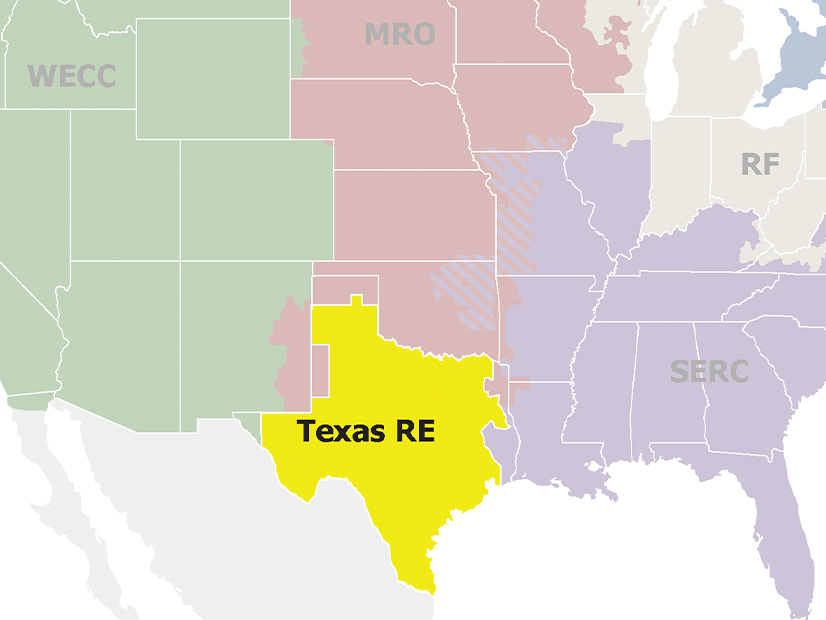FERC on Dec. 1 approved a set of updates to the Texas Reliability Entity’s Reliability Standards Development Process (RSDP) intended to give more flexibility to the regional entity’s Member Representatives Committee to develop standards and align the document more closely to NERC’s Standard Processes Manual (SPM) (RR23-1).
NERC filed the RSDP changes with FERC in May, after the RE’s Board of Directors approved them at its quarterly meeting in February. (See “Regional Standards Process Approved,” Texas RE Board/MRC Briefs: Feb. 8, 2023.) The RSDP defines the process for adopting, approving, revising and retiring Texas RE’s regional standards, as well as for creating a regional variance to a NERC standard.
The approved changes will affect all 10 sections in the current RSDP to varying degrees, with most of the revisions in the first four sections. These comprise the introduction (Section 1), elements of reliability standards (Section 2), roles in the standard development process (Section 3) and the development process itself (Section 4).
In Section 1, Texas RE will merge the background section of the current RSDP — which “requires regional reliability standards to support one or more of the NERC reliability principles and to be consistent with the NERC market principles” — with the introduction. Additional revisions to this section add principles for standards development and assign the task of determining who may participate in standards development to the RE’s Reliability Standards Manager.
Next, Texas RE will move language from one of the current RSDP’s appendices to Section 2, adding references to NERC’s 10 Benchmarks of an Excellent Reliability Standard and changing terminology to be consistent with the SPM.
New language in Section 3 will specify that the MRC “may undertake reviews of [FERC] orders and coordinate with NERC in the development of NERC’s annual reliability standards development plan.”
Revisions to Section 4 require Texas RE to follow NERC’s evaluation procedure when developing new regional standards, create “distinct process steps” for creating standard authorization requests (SARs) and add a requirement for the MRC to be notified when a SAR is submitted. Public comment periods for SARs have been lengthened from 15 days to 30; comment periods for draft standards were extended from 30 days to 45, with a ballot in the last 15 days; and the MRC will now be required to meet at least once per quarter.
Additional changes to Section 4 include organizational updates removing language requiring standard drafting teams to assess the impact of a SAR on neighboring regions and creating more options for obtaining feedback on draft standards. The revisions also add voting positions, consolidate language and provide flexibility regarding the termination of unsuccessful projects and procedures if a draft standard does not pass industry ballot.
Updates to Sections 5 to 10 provide for regional reliability standards to be “considered for review at least every five years,” instead of requiring a review as is currently the case; list information that SARs must provide to the MRC; give reasons the MRC can reject requests for interpretation of regional standards; update the appeals process; and outline a method for conducting field tests that is consistent with NERC’s SPM.
Public Citizen Opposes Language on Markets
FERC received only one filing opposing the changes, from Public Citizen.
The advocacy group objected to language in the revised RSDP requiring reliability standards to “accommodate competitive electricity markets” on the grounds that market considerations are outside the ERO’s purview. It requested that any references to competitive markets be removed from the document.
In response, NERC defended the language, citing the Federal Power Act’s requirement that FERC “not defer [to the ERO] with respect to the effect of a standard on competition” and the commission’s order that proposed standards should have “no undue negative effect on competition.” NERC also observed that nearly identical language was already in the previous version of the RSDP, albeit in a different section.
FERC said Public Citizen’s request was “outside the scope of the instant proceeding” while echoing NERC’s observation that the proposed revisions “do not substantially differ from” previous versions of the RSDP. As a result, the group’s objections were rejected, and the new RSDP was approved, effective immediately.


